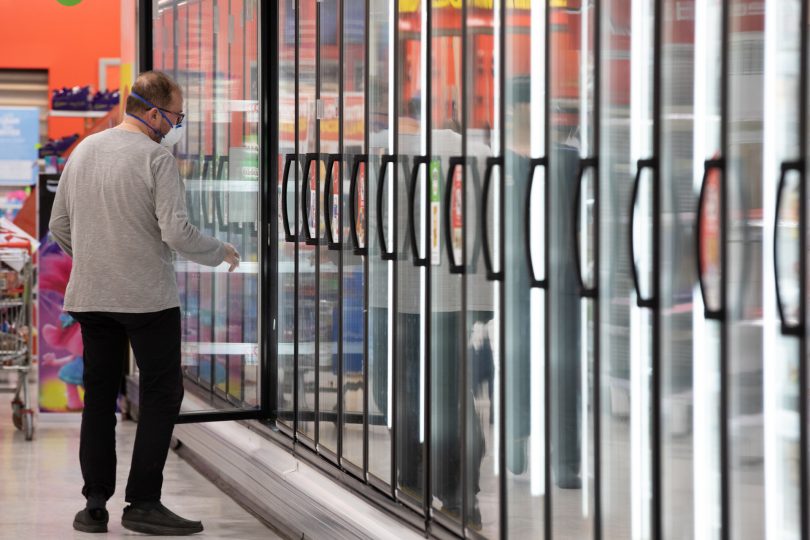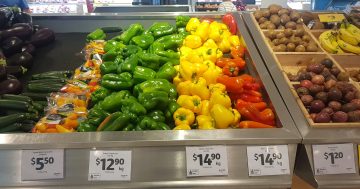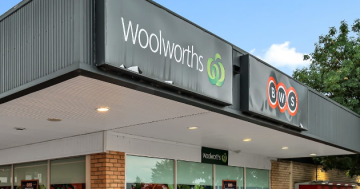
Supermarkets, beware! The government is doing more to help the ACCC investigate illegal pricing practices. Photo: Michelle Kroll.
The Federal Government just gave the Australian Competition and Consumer Commission another $30 million to help it crack down on “dodgy supermarket practices”.
The money will fund more ACCC investigations and enforcement in the supermarket and retail sectors.
Prime Minister Anthony Albanese said the extra funding will enhance the regulator’s ability to proactively monitor behaviour and investigate pricing practices where there are concerns about supermarkets and retailers falsely justifying higher prices.
“Today we are announcing a crackdown on dodgy supermarket practices,” the Prime Minister said on Tuesday (1 October).
“We don’t want to see ordinary Australians, families and pensioners being taken for a ride by the supermarkets, and we’re taking steps to make sure they get a fair go at the checkout.”
The funding boost follows last week’s announcement that the ACCC is taking legal action against Coles and Woolworths for allegedly misleading customers through discount pricing claims on hundreds of everyday products.
The PM said misconduct in the supermarket and retail sector is unfair, unacceptable and makes cost-of-living pressures worse for Australians.
“We don’t want to see ordinary Australians, families and pensioners being taken for a ride by the supermarkets, and we’re taking steps to make sure they get a fair go at the checkout,” he said.
The government is urging the ACCC to undertake a thorough “crackdown on misleading and deceptive pricing practices and unconscionable conduct” in the supermarket and retail sector.
In addition to the funding top-up, Labor is moving to address planning rules that reduce competition in the supermarket sector.
Current planning and zoning frameworks, including land use restrictions, zoning laws and planning regulations, are acting as a barrier to competition by inhibiting business entry and expansion.
They potentially allow for land banking, preventing competition and pushing up prices in our local communities.
Treasurer Jim Chalmers will be working closely with states and territories through the Council on Federal Financial Relations to reform planning and zoning regulations, which will help boost competition in the supermarket sector by opening up more sites for new stores.
“We’re taking decisive action to help Australians get fairer prices at the supermarket checkout, in stores and online,” the Treasurer said.
“More funding for the ACCC will help to make pricing fair, boost competition and make sure that there are significant consequences for supermarkets who do the wrong thing.”
Last week, the government released a new mandatory Food and Grocery Code for consultation to ensure Aldi, Coles, Woolworths and Metcash are subject to multi-million-dollar penalties for serious breaches of the Code.
CHOICE has also released its government-funded price monitoring report, giving Australians accurate data on where to get the cheapest groceries.
Bans have now been placed on unfair contract terms, with increased penalties for breaches of competition and consumer law.
The sector is also undergoing what the government is describing as the “most significant merger reforms in Australia in almost 50 years” while a collaboration with states and territories is working through a revitalisation of National Competition Policy.
“When people are under financial pressure, they’re looking for … value, and they expect some level of trust with supermarkets,” the Prime Minister said.
“We want customers to get the best deals possible, and we want supermarkets to do the right thing.
“Now, if they won’t do the right thing voluntarily, we’ll mandate to make sure they do do the right thing and give the ACCC the power to clamp down on behalf of consumers.”
Opposition Leader Peter Dutton linked the supermarket crisis to Labor’s renewable energy push, saying it was causing price hikes for everyday grocery items.
He’s urging Australians to get on board with his nuclear energy plan.
“When we go into Coles, or you go into Woolies, or you go into the IGA, when you’re paying more for every product at the checkout, you know, in part, it’s because of the government’s renewables-only policy,” Mr Dutton said.
“That’s why we’ve got a sensible policy on the table to make sure that we can firm up with a 24/7 baseload power, our renewables that are in the system. If we don’t get the balance right, which the government’s not doing at the moment, then we just see a continual increase in costs.
“So when you go to the checkout, and you’re paying more and more under Labor, you can understand that it’s in part because of their energy policy – and that’s an important point to make today.
“We know that over the course of the last couple of days, the Treasurer and the Prime Minister have been out patting themselves on the back.
“But the reality is for Australian households who are struggling at the moment, they’ve been in 18 months of household recession.”




















